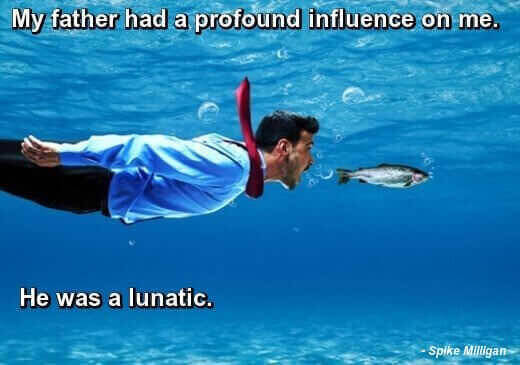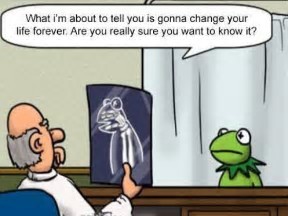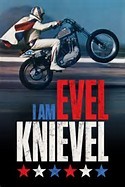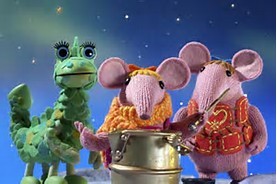Don't wanna be here? Send us removal request.
Photo

Why it’s harder to let my son roam free and gain independence. Also including the “Texas Rules Of The Road”
http://genforward.org/blog/why-its-hard-for-kids-to-be-free-incorporating-texas-rules-of-the-road/
0 notes
Photo


http://genforward.org/blog/deny-deny-then-blame-something-else/
Accountability is hard to find in today’s world
0 notes
Photo

http://genforward.org/blog/im-his-father-not-his-friend/
0 notes
Photo

http://genforward.org/blog/thousand-year-old-playground/
0 notes
Photo

http://genforward.org/blog/god-and-other-opinions/
0 notes
Photo

http://genforward.org/blog/classic-kids-at-play-1970s-style-part-2/
0 notes
Photo

http://genforward.org/blog/classic-kids-at-play-1970s-style-part-one/
0 notes
Photo

Ever done something, well, stupid that’s changed your life??
http://genforward.org/blog/what-if-how-one-decision-can-change-a-life/
Ok, let’s start today's GenForward blog here by saying that I’m pretty happy in my life right now. Yes it would be great to have a bunch more money, and to maybe have to do a bit less work, and maybe have a bit more in the way of actual family time, but hey the big things outweigh the little things.
I sometimes sit back and think about the madness that has been my life. Of how I went from being a small boy growing up in a small town in the county, to where I am now, sitting here in the USA, married to someone from another different country in Europe, doing what I’m doing and being happy. The odds are ridiculous.
My past has been filled with good times and bad, smart decisions and even more poor ones (but usually made with reasons of good intent). I have earned money in the hundreds of thousands per year, and I have been practically homeless. I have travelled all over the world and lived like a rock star, and more often I’ve barely scratched my way though to the next week.
All of it is what’s made the “me” that I actually like today. Much as some of the bad stuff I may fleetingly wish to change, I understand that it cannot happen and still give me the same end result. So instead of trying to change my past (when my son finally finishes inventing the time machine he’s been working on, with Lego and bits of cardboard box, then I may actually have a choice in changing the past, but for now...), I embrace it. I try to see what lessons can be learned and maybe passed on.
All of that being said, there are certain moments that I look back on and can see how they would have potentially changed EVERYTHING. Moments when my life would have gone on a track that was 180 degrees from where I ended up heading. Who can say where the journey might have ended in that case, maybe better, maybe worse. I think ultimately I would probably have been happier in my work for many years, however that’s by the by.
The incident in question was when I was 17 years old, shortly before I moved out of home (which is another story altogether). I had been born into the home computer revolution. All of my life I had been involved with computers, video games and electronics.
I got my first system in about 1976 or 77. It was a Binatone game system that you plugged straight into the TV. Using this wonder of modern technology, me and my brother were able to battle it out in various “sports” involving a court with various bits filled in or missing. There were 3 sides for squash, 2 sides with open ends for tennis, 4 sides with a hole at each end for football (soccer), and the game involved bouncing a square dot of a “ball” around with a stick of varying lengths (long for normal setting, short for pro).
Over the years I had exposure to everything from the Spectrum ZX81 with it’s amazing 1k of inbuilt RAM (you could upgrade by plugging in a small suitcase sized brick that gave you 16K), through my BBC B with which I started to learn BASIC programming, then to a series of Commodore machines (which were practically impossible to programme but had the best games).
I had always loved these things and could regularly be found down the local computer/CB radio store, acting as a pretend employee, technology expert and general gaming guru. When I hit 16 and left High School, I then picked up Computer Science as one of my Advanced Level subjects. I found it easy but didn’t do particularly well at the exam, primarily due to the mark being about 50% based on a programming exercise.
I had proclaimed that I would write a programme to catalogue my ever growing record collection. It was supposed to be carried out over several terms of homework assignments. Due to my usual fascination with beer rather than schoolwork, I ended up sitting in a corridor finishing off my project (18 months work condensed into 4 days) just as the envelopes were being sealed to send them off for marking. Needless to say, “Not his best work”, would have been a fair tagline.
So, next step was either university or work. Given that I had just spent 2 years avoiding education, my parents didn’t want to back me in going to university, to just bum about and throw away another two years or more. Besides, I wanted to go and earn some money. I had had a taste of proper money (well, over 100 pounds a week) working in a local bacon factory over the summer holidays, and I liked the feel of cash to burn.
My Stepfather was and IT Director for a big multinational firm at the time, and he was good enough to pull a few strings to get me an interview as a trainee computer programmer/systems designer, at a small IT firm about 15 miles away. This was right up my street, so I was well chuffed with the whole idea.
I went along for the interview which really consisted of a bunch of people being sat in a room and given an IQ test, followed by a 5 minute chat where I could impress them with my 3 week A level project, which had barely qualified for a grade, written in a coding language that they didn’t use.
Next thing I hear is that they want another talk. I am told when I turn up that although I had no experience, they were talking to me because I had scored higher in the IQ test than the guy who was running the company (had no idea what that meant then but it sounded good). I am also sure that my Stepfather probably had a finger in greasing the wheels. I was to join them and start the following Monday morning at 9am, sharp.
Well, I was there by 9am, but I wasn’t exactly “sharp”. You see I had been out to celebrate my new job on the Friday......and the Saturday.....and the Sunday night. As if that wasn’t bad enough, the Sunday night had involved crossing paths with a young lady, with whom I became quite smitten (not sure if alcohol was at play here but I had been smitten by her sister 2 nights earlier as well). Being naïve teenagers, living in the country and with no place to go, we left the pub (well after closing time as we were both regulars and the landlord was a believer in after hours “lock-ins”).
She was a little older than me and actually had a car (of sorts), so she drove me home and we parked outside my house. Then, how shall I put it, time kind of got away from me. By the time I could drag myself away, I had about 20 minutes to go and get showered and dressed, and to catch the bus that would take me to my new job. At this point, sleep was simply not an option. But hey, I was 17 and could officially handle anything.
I arrive at the new job and a complete doomsday scenario unfolds.
Instead of the engaging induction into the world of the company, and computers in general, that I had been expecting, I was greeted with a book. They explained that as I knew nothing, I should start by reading bit about the basics of programming in “C”, and that till I had an understanding of that they really couldn’t do anything with me.
I was led to a room where a couple of what looked like 20 somethings, clicking away at chunky computer keyboards. Apart from the click of the keys, there was silence. The room had no windows. Air conditioning in the UK is still few and far between; in 1987....well, just no, so it was hot. The book they gave me might as well have been titled “1001 ways to be certain not to stimulate any interest at all in your reader”. It had to happen.
I probably managed about 30 minutes before my eyes started to sting and get heavy. I made a trip to the toilet to splash water on my face. Good for maybe another 15 minutes, by now the room was spinning. More water. HELP!
Next thing I knew, I was prodded awake by the HR person who kindly informed me that, due to the fact that I had fallen asleep twice, and that my snoring was interfering with the other coders, my services were no longer required. They took back their book, and I was thrown out unceremoniously into the street, to wait for the next bus home.
My Stepfather got on the phone to the firm, and tried to explain a bit and fight my corner. It got to the point where it was conceded that the boss may have overreacted a bit, but now that he had, he wasn’t backing down. That couple of hours signaled the end of my career in computing.
Although I did have a genuine passion for computers and computing, as was generally the case back then, the education we had received bore no relation to what was wanted in the work place. Although I applied for other jobs, the next thing I got offered was a job in a local supermarket. To be fair, not exactly the toughest job to land. However it was money, and given that I had just decided to move out of home (and in with the girl whose attractions had so distracted me, so maybe it wasn’t just the drink), money mattered in a big way now as I had bills.
From there, I got promoted within a week, and that was the beginning of a long and varied path to where I am today. Although I do look back on that moment as pivotal in my life, and it’s one of those where the “If you could do one thing differently” question raises its head, as I have mentioned before, I don’t regret it. It would have changed a great many things in my life I’m sure, but that’s not my story now. It’s done. I’m happy now.
Despite this, the reason I relate this story, and I have told this to my son as well, is to illustrate how one stupid decision (and lets face it, sitting up all night before you’re about to start a new job is pretty stupid, whatever the “excuse”), can change the course of a person’s life. Fortunately for me, it worked out ok in the end and it only really affected me.
The kind of bad decisions I really worry about my son making, are the ones like taking a drink and getting behind the wheel of a car, or not having the ability to say “No” to his friends, when every sane bone in his body should be screaming at him that what he’s getting involved with is wrong.
The kind of things that really have to take-backs, no do-over’s, it’s done. The problem is, you can tell your children all day long, but at the end of the day, there’s no reason they are likely to be any smarter than you or I were at that age. It’s kinda tough to explain to them how little they really know, especially as they progress though the dangerous teenage years with temptations of alcohol, drugs and sex lying there in front of them. That's a big part of why we came up with GenForward, to have the answers there for them without having to ask directly. You might not be lucky enough to get the question from them till after it's too late so some advice beats none.
They are already struggling to create their own personality and be their own person. Old enough to think they know everything, yet young enough to know next to nothing. Well, that was me at least and, though the world has changed a great deal since those times; people haven’t so much I think.
0 notes
Photo

This and more at http://genforward.org/blog.php
Whilst the actual value of “homework” is a matter for some debate (Finland stopped using homework as part of it’s strategy to improve education and moved from the same kind of spot in the leagues as the USA inhabits, up to be top performers), the fact today is that it’s part of the life of most children here in the USA at least.
My son is 11, and to be fair, the amount of homework that he has is really pretty minimal. It consists of about 3 times a week being given math homework, that seems to be a mix of going over recent teachings, stuff a 5 year old should be able to do (I believe this is considered “reinforcing the basics”), and an occasional one off piece of basic comprehension, or a science quiz or something of that nature. Really not much.
I do my very best not to get involved with the doing of the home work, but I do insist to see the finished result before it goes in. This is part of my ongoing effort to help him get to grips with presenting work that another human being can actually read and make sense of. He’s a bright kiddie and generally if he gets something wrong it’s because either he didn’t read the question correctly, or his workings are so messy he’s got himself crossed over with his numbers. Either way, after sending him back to try to find the errors for himself first, I go through his mistakes with him so that he can see why he’s got something wrong.
To me, this is all part of learning. It’s not much use having information or ideas in your head if you can’t communicate them in a way someone else can easily understand. This involves not only knowledge in the subject at hand, but also practice in the art of general neatness and presentation. And also it’s an important part of learning to be able to see where the holes in knowledge exist.
This is part of the reason I have a bit of an issue with what seems to be a growing trend in the work he’s bringing home. About half of the math he brings home seems to be Multiple Choice. Invariably when its multiple choice homework, the normal 20-30 minutes spent doing the piece of homework will now be down to about 5 minutes. I get presented with a sheet of coloured in dots.
My first bug bear is that this approach teaches nothing of presentation skills. My bigger issue is that it really doesn’t allow the same scope for mistakes to be made and wrong answers to occur. Supply a chimp with a crayon and it should make 25% on a multiple guess test. If a 25% mark can be achieved by luck anyway, what’s really the point?
In the interests of full disclosure, I’m not a fan of the way this new math curriculum is teaching math in the first place. Our son is also in the “Gifted and Talented” stream, which I had hoped would mean that he would have the chance to move a little ahead of the curve, in terms of the level of what he was being taught. Unfortunately it just seems to mean he gets taught the same thing, just more of it.
That said, I’m not singling out math, it’s just he seems to get more of that homework than anything else so I see these things more often. My issue really is with the multiple choice format for tests (again, you won’t see them in high achieving educational countries like Finland). Getting things wrong is a huge part of learning. In fact I always tell my son that the first time is not actually getting it wrong, the first time is learning (be it in school or in life, the real trick is to only make the same mistake once, then it’s all just learning).
I want to see mistakes. Mistakes mean that we look more deeply into where the error came from. Mistakes show us gaps in understanding and make sure that those areas are covered again until he understands. Mistakes help make sure his knowledge is complete. With multiple choice, he could have just got a question right by luck, and I’d never know without going through the whole thing anyway, so he can demonstrate the correct answer and how to get there.
I do like to see the teaching my son gets at school as only part of the learning picture, rather than it being the school’s responsibility to educate him. I try to make sure that a lot of the gaps and errors that exist in the things being taught (every time he comes home and tells me Columbus discovered America makes me cringe) are filled in. At the same time, I try to be careful not to confuse him over what he’s being taught, just because the method of teaching is a lot different to what I grew up with.
This means I need to see the holes in his learning in order to help him. In something like math, I’ll stick offering other him other methods of solving a problem (he tends to have more difficulty with the new curriculum methods that the old fashioned ways I was taught), and trying to integrate the way he’s being taught into it so he can see what’s going on. Whichever method he uses I don’t care so long as he’s comfortable with it and accurate.
In other subjects (History is a biggie for “up-teaching” as there’s a lot more out there than the American history he gets fed at school), I will supplement his learning and put some of what he’s being taught into the bigger world picture that it is a part of to give him a better understanding.
The long and the short of it is that multiple guess really isn’t a way to educate kids; it’s just there to make it easy for a machine to mark tests. I want to know where the holes in my son’s knowledge are, so that I can help him fill them. Education shouldn’t be about helping children to pass tests.
More Blogs At http://genforward.org/blog.php or sign up for a free account at
http://genforward.org
#genealogy#school#mathematics#testing#kids today#children#homework#teaching#legacy#childhood#growing up#learning#boys#parenting#parenthood#family history#history
0 notes
Photo

Visit http://genforward.org/ to create a free account
Why GenForward?
It should be clear from the explosion in interest in genealogy and sites like Ancestry, that there is a deep seated desire for people to know more about their pasts, to better understand where they came from. People want to understand who they really are, where they came from, and how they fit into the world. They will spend hours online, searching for the smallest scrap of family history, a photo, a marriage listing, a birth certificate, or an immigration record. How much do these things really say about the people they refer to? About their lives, thoughts, knowledge, hopes and fears?
A century or so ago, people did have a bit more of an excuse for not having left much of a traceable footprint. Photographs were expensive, letters, diaries or journals and such things could be easily lost, disposed of or destroyed (how did we ever manage before e-mail when we actually had to write a letter, put a stamp on it and wait a week for a reply!)
In todays world of technology, there’s really not much of an excuse. Practically everyone from teenage years to old age now has some form of mobile device with which pictures can be taken and sent instantly around the world. Cloud based services mean that mass data storage is cheap and easily accessed so there’s no reason for a written history to ever go missing again.
Think again about the person currently using a genealogy website to find out how they fit into the world. Now imagine that it’s your own child, or grandchild or beyond. Would you want all they find of you to be a photo or two, or maybe even bring things up to date, your twitter or Facebook postings? Or would you rather them have a proper journal of your life, experiences, knowledge and feeling to help guide them and to help them to truly know and understand you?
Even today, children have a world of questions about their parents when they were growing up and the social history behind it (what WAS life really like without e-mail, or when there was no such thing as an answerphone, never mind a cell phone?!). Unfortunately as hard as we might try, there’s not always the right opportunity to handle these questions in full so wouldn’t it be great to have a forum where the kids could find out all about their parents and receive guidance and life lessons in their own time? Even ask the questions that they might be embarrassed to ask in person?
That’s really what GenForward is about. Taking hold of our responsibility to our own children, and our children’s children and beyond, to leave behind the lessons of our lifetime. There is no greater gift to a future generation than to have the knowledge of a lifetime or more put at their disposal at a young age. To increase exponentially their chances of making the right choices the first time. To avoid having to learn “The Hard Way” every time, and to put their own experiences in better context, in order to help better cope with what life has thrown at them.
There’s a saying that “Life is unfair because it gives you the test first and then you learn the answers afterwards”. It doesn’t need to be that way. With GenForward, you can help your future generations cheat by giving them the answers to the questions that their life has not yet seen fit to ask them.
Free Account at http://genforward.org/
#genealogy#photography#family#family album#growing up#family history#free#leagcy#children#parenthood#history
0 notes
Photo

This and more at http://genforward.org/blog.php
Thing’s Ain’t What they Used to Be...
I’m not quite ready for my pine box yet, however I have been around long enough to watch a great deal of change in both things like technology (I was a proud owner of one of the first Binatone black and white pong machines and have been a gamer all my life), and the general zeitgeist in regard to pretty much most other areas of life.
I was talking with my son a few days ago, prompted by a massive whine from him about him having to do chores. To put some perspective on this, he’s 11 years old and is expected to empty bins, unload and put away the contents of the dishwasher, grab the mail as he walks past on his way back from school, tidy his bedroom, playroom, bathroom (a child having their own bathroom! Not in 1970’s England we didn’t!), and setting the table for dinner.
Depending on how well he does at doing these things, without having to be told to do them and supervised, he gets a greater or lesser pocket money at the end of the week. We’re really just trying to promote not only some kind of work ethic, but also independence of action and the concept of performance affecting outcome in life.
Casting my mind back to my own childhood, I remember how different things were. As a child I was always hungry for money to spend on stuff I wanted. Generally total junk (many times I would blow a whole week’s wages on Kalkitos transfer sets (see end of article) :P), but to me it was cool that I could get things without needing parental supervision.
In my day, most kids who wanted money did a paper round. There was the odd lucky one who hit the jackpot and got hold of a job as a helper on a milk round, which paid about 5-10 times as much, but that’s not what I got. (Just in case I’m losing people here, at this time it was normal to have people come round and deliver fresh milk, yoghurts, and orange juice kinda stuff each morning. Crazy idea huh.)
It was a local newsagent where I got my first ever. The rounds started when you had to report in at about 6 in the morning. You would then sort and number your papers for your round (maybe 50 deliveries), and away you go. The rounds often covered several estates and could involve blocks of flats (apartments) as well as normal houses.
Unlike in the USA as we often saw on the TV (with a total of 3 channels that stopped broadcasting at midnight!), this was no “ride by shooting” type delivery. You had to go all the way to the door, avoid getting eaten by the dog, and post paper through the letterbox. The whole round would probably take about an hour and a half, if you were only doing a “single”. Some people did two rounds per morning, or extra if one of the other children were off sick/eaten by dog/or just plain MIA.
This was from Monday to Saturday inclusive. Sunday there were also deliveries and most people worked those too, as they started later and you earned a separate pay for those, although with all the Sunday supplements in the papers, the bags we were carrying felt like they contained a small family car.
Again, we are talking about the 1970’s in the England. I remember that most of the year it was pitch dark, just starting to get light as I got home, coloured black from the not yet dried printing ink on the
papers. If it wasn’t raining, it was freezing. Come snow, sleet, fog, hailstorm and hurricane, out we went. The papers had to get through!
For all of the above, we received the princely sum (and I do remember it to this day) of 5 pounds and 75 pence per week. Couple of pounds more if we had done 7 days and worked Sunday too. I had this job for a couple of years, but I am struggling to believe how old I must have been when I started it (I’m sure it wouldn’t be legal today in the USA). I recall I changed schools when I had just turned 10 years old, and I was doing the round prior to that so was probably 10 or 11 when I started.
Much as I can’t imagine allowing my son to get a job like that (A: We are in the USA now and School starts much earlier and B: To be honest he’d get lost as soon as he reached the end of the driveway and would never be seen again), it did teach me a huge number of invaluable life lessons and made me much more of an independent type person that I see in most children today.
Looking back, the whole thing was really pretty hellish, but there was that feeling come Saturday morning when you went in and got paid for the week that was something special. Not pocket money, my own hard earned money from my own job. Not a sense of entitlement but a really “grown up” feeling.
If you told that kind of thing to most kids today (as I did to my son), they are likely to look at you like you’re some kind of mental case for even suggesting that such a thing could occur. However I’m sure there are many of you who can recall these kinds of things going on (at least the British readers, we didn’t know much about what was going on in the USA in those days so I can’t really comment.)
I’m not saying that there’s no kids today who don’t know the meaning of the word “work”, and I’m also not saying that the kind of things that I’m describing are the best way forward and should be happening today. I’m really just reflecting on how attitudes have changed and that although this is generally for the better, some positive things have perhaps been lost along the way.
http://genforward.org/blog.php
#1970s#genealogy#funny#work#paper route#growing up#memories#childhood#chores#britian#family history#history#boyhood#society#britain#dogs#attack dog#dog attacks#dog bite#newspaper#child labor
0 notes
Photo

This and more at http://genforward.org/blog.php
How Did We Ever Survive?!?
I look at the way life is today, and the way children are handled not only in my own house, but it seems most others round here. Then I look back at the way things were when I grew up and you know what, it may be amazing that I survived childhood, but the outcome is totally different in terms of self-confidence, independence and resilience.
The trend today seems to be to treat children more like they are fragile little flowers, with parents swooping in to deliver a hug or wipe a nose or whatever depending on the “disaster” at hand. When I was brought up, things might have been like that for the first three, MAYBE 4 years, but that was it. At 5 we were chucked off to “Play School”, with a bunch of other uncoordinated accidents waiting to happen, and basically given the ammunition to wreak havoc.
Blocks and sand are clearly meant to be thrown, plastic shovels and hammers are clearly designed to be bounced off another child’s cranium, and I assure you, even after the hospital visit, I was still convinced that the “ride on” fire engine was 100% supposed to be ridden down the slide (you will be amazed at the velocity a 5 year old can reach when on a wooden slide at 45 degrees with no friction from the plastic wheels), and into the group of children finger painting. The flaw in the plan, was never making it to the children, due to the faceplant that occurred at the bottom of the slide.
We were of course supervised, but that involved a few harassed mums, dragging screaming kids apart, whilst trying not to drop too much ash on them from the lit cigarettes they had in their mouths. Yes there were tears when we got smacked for the end result of our latest great idea, but 5 minutes later we were over it and off trying to insert Lego up both nostrils.
Things didn’t get much better as we got a bit older. Many happy afternoons were spent playing “war” in the local woods. Plenty of opportunities for falling out of trees, getting stung, or taking a heavy impact from a grenade (aka rock).
Then we would go rummaging about in the local dump and drag out mattresses that a drunken homeless person wouldn’t even think of sleeping on. They were ALWAYS wet, either from the rain or from where the fire department had last been called out to extinguish someone’s latest attempt to reenact Joan of Arc’s last big day out. They would also stink, be full of holes, have pounds of various filings leaking out of then, and of course, to top off the ensemble, plenty of protruding rusty and broken springs.
Of course the only possible use for these was to pile them at the bottom of a tree, climb up, and see who could jump from the highest branch. The winner was obviously the one who made it second highest. The one who really pushed the envelope and went from the actual highest branch would in fact generally, break the envelope, and a leg, or maybe skull.
During a temporary hiatus in the tree jumping activity (we had to let things cool off for a couple of weeks after each time someone took a trip to intensive care), we discovered another use for the mattresses. By this point I was probably 7 or 8, so me and all my friends were getting brave on bikes, we had done the no hands (no brains) bit and were now moving onto jumps.
Now, when I say bikes here I’m not talking todays’ lightweight BMX type things. I’m talking 1970’s bikes, build to last from steel girders and rivets. My brother had a “Grifter”, which was probably best suited to the purpose of jumping. I had a “Dolphin”, which was probably best given to a friend so they could go and ring for the ambulance in advance.
Given the time we’re talking about here, Evel Knievel was kind of a big deal and I guess we were just mimicking a hero so it was clearly all his fault. Maybe we had all missed the bit at the end of the jump where he nearly lands it and then promptly proceeds to break another 37 bones, to the cheers of the crown and the blaring of the ambulance sirens.
Anyways, our jumps were not the scientifically worked out type, more the trial and error type. Again, pushing to find the edge of the cliff, by getting more outlandish till someone fell off. We would drag up a collection of pieces of wood of varying lengths and thicknesses, and a small collection of bricks and breeze blocks. Pile up the bricks, balance a board on them. Line up the next crash test child on a bike 100 yards down the street, and away we go.
After varying minor injuries perfecting the correct length and thickness of wood, so that it didn’t just bend and leave you to crash into the bricks, launching head over heels into the waiting punji stick mattress, we had something that was working. Then it was a case of adding bricks for height.
We next discovered the radical instability of a single pile of bricks when stacked 5 or 6 high and asked to support a child and bike on a ramp. Fortunately every child’s system was always coursing with fresh tetanus jabs in the 1970’s. Eventually we had a construction system that would let us have a 5 or 6 brick ramp that would only have about a 50% chance of collapsing on impact, and we were green lights for the distance competition.
We were not sure how many mattresses we’d be able to clear, if any. So, for safety, we used local children instead. Lying them down side by side and convincing them that if they lay still they had a good chance of seeing their next birthday. If they moved they would be hit in the face by a front tire. Most of them stayed still, especially after they saw what happened to the first one who moved.
We were managing 7 or 8 children quite comfortably. Strangely there was always a degree of reticence to be the last one on the line whenever we added to the number of children we were attempting to clear, but we were in a good place. Then it all went wrong.
One of the younger kids (he was about 5) who had been watching/being jumped over, decided he wanted a go. I guess he’d been inspired by our heroism and hadn’t noticed all the blood.
Off he went and came back with his lime green “Boxer” (we really should have stopped things at this point but I was too busy trying not to pee myself laughing), which is kind of a miniature version of my brother’s Grifter. In the right hands it might have made it. And if it had had maybe an engine or something to power the 12” wheels.
To his credit, he did show enthusiasm on the approach; those little legs were a blur. He looked very intense as he hit the bottom of the ramp, then kind of surprised as he left the take-off end. I’m really not sure he ever actually had the speed to have made the jump anyways, but he certainly lacked the form required to have any chance of survival intact.
Experience had taught us more professional jumpers to keep our weight back a bit so that we landed rear wheel first. This kid didn’t have experience, so after lazily climbing in the air, he leant forward, now looking genuinely panicked (I guess he may have started to figure out things were not going to plan), and aimed his front wheel squarely at the middle child in our “Row of Death”.
It never ceases to amaze me, the speed at which a child can move from a lying position when they are about to be landed on by crying 5 year old on a 200 pound bike, but they all made it. This fortunate turn of events meant that we only needed the one ambulance. Evel Knievel in miniature would have made his idol proud.
He landed at an angle of about 45 degrees, front wheel first. Momentum and his body position helped hurl him over the handlebars (we all conceded that if we’d counted where HE landed and not the bike he’d have made the required 8 child jump distance by miles), where he could then slide down the rutted pavement on his face, just like he was in a Tom and Jerry cartoon (the old good ones not the junky new ones).
There was quite a lot of blood, snot and tears when we finally peeled him off the floor. He’d managed to jam a few of his teeth through his top lip and out the other side. Obviously we were all fascinated but figured that we may now be “In Trouble”, which in the 1970’s meant, about to get hit. We quickly kicked all of the boards and bricks into the woods, and the bravely sent him home to his mum, having sworn him to secrecy.
Should have known it, the git blabbed. Of course I got it with both barrels as I was, “the oldest and should know better”. At then end of the day it was just a couple of stitches and a minor bit of scarring. The kid was ok as well. (Joke alert! It really wasn’t that bad of a beating considering we had nearly killed someone).
Anyway, I tell this story not because it’s extreme, but because I have hundreds of them. There was no nanny state. Boys were boys, and went out and had scrapes and adventures. Some survived into adulthood. I just feel that when I look at the kids of today, I was so much different. Far more independent, far more resilient for sure.
Yes we got knocks and bruises and, yes, some of us actually did get hurt badly, but everyone I know survived. Have we gone too far in being protective of our kids? I dunno. Maybe it also had a lot to do with the fact that in the UK we had free healthcare for all so parents were more worried about you ripping up your clothes than the holes in your legs.
Maybe 500 bucks plus for every visit to A+E might have changed attitudes. I have to admit, I think about it when I can see my boy creating an accident waiting to happen, no matter how much I think I’d like him to learn a lesson, the thought that the lesson is going to cost me as well tends me towards fiscal caution.
I think my parents would have gone bankrupt.
http://genforward.org/blog.php
#1970s#funny#genealogy#old bikes#childhood#memories#grifter#childhood games#living dangerously#evel knievel#boys#family history#history#accident#bike jumps#crash#hospital#ambulance
0 notes
Photo

Of Course We're All A Bit Odd...
Warning! Younger readers or those not from the UK may think I am making up much of the following. A brief trip round Google and YouTube will prove otherwise!
People often comment that I have a somewhat strange perspective on life, however I have noticed that many people around my age are replete with all kinds of strange quirks and character traits. Of course you could put this down to being a result of the ageing process, gaining life experiences and getting things into perspective.
More recently however, prompted by mental journeys back into childhood in order to have content for this blog, I have begun to think that there may actually have been more sinister forces afoot. A dark government (or even bigger) plot, to carry out some kind of consciousness alteration experiment on a whole generation. I refer of course to children’s television of the 1970’s.
Full article here http://genforward.org/blog-single.php?blogid=119
#1970s#genealogy#memories#funny#childhood#legacy#history#family history#1970s television#children#growing up
0 notes